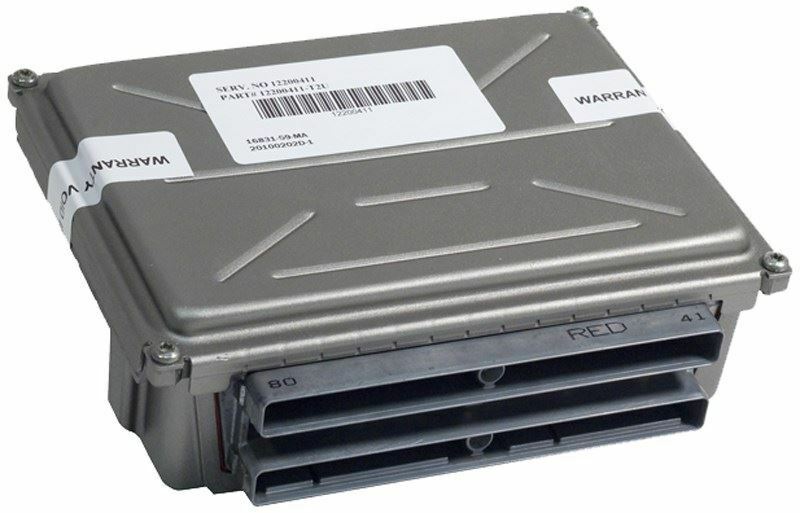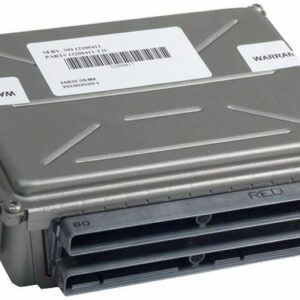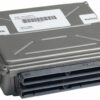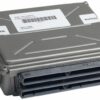Restore Your Impala’s Brain and Bring It Back to Life
Is your 2001-2003 Chevrolet Impala running rough, shifting erratically, or showing a persistent Check Engine Light? As a technician with over two decades of experience, I’ve seen these symptoms countless times. Often, the root cause isn’t a dozen different failing sensors—it’s the one component that controls them all: the Powertrain Control Module (PCM). This module is the central computer for your engine and transmission, and when it starts to fail, it can create a cascade of confusing and frustrating problems.
This isn’t just a replacement part; it’s a complete, hassle-free solution. We take a genuine OEM Powertrain Control Module (compatible with part numbers 12209614, 12202600, and 09360210) and flash it with the very latest GM-certified software specifically for your vehicle. All we need is your Vehicle Identification Number (VIN) at checkout. This critical step ensures the module communicates perfectly with your car’s existing systems, eliminating the need for an expensive trip to the dealership for programming. You get a part that’s ready to install right out of the box, restoring your car’s performance, fuel economy, and reliability.
From the Diagnostic Bay: The Ghost in the Machine
I remember a 2003 Pontiac Grand Prix with the 3.1L engine—which uses this exact PCM—that came into my shop with a whole list of complaints. The owner had replaced the throttle position sensor, the mass airflow sensor, and was about to do the transmission solenoids. The car would hesitate, the transmission would shift hard from first to second, and the cooling fans ran constantly. A scan showed a few intermittent communication codes but nothing concrete. After verifying the wiring was solid, my experience pointed to the PCM. The internal logic was failing, sending faulty commands. We installed a VIN-programmed module like this one, and every single issue vanished. It’s a powerful reminder that sometimes the ‘brain’ is the real culprit.
Common Signs of a Failing PCM
If your vehicle is exhibiting any of these symptoms, a faulty PCM could be the cause. Replacing your old module with this quality part can be the definitive fix.
- ✔ Persistent Check Engine Light (CEL)
- ✔ Diagnostic Trouble Codes (DTCs) like P0601 (Internal Control Module Memory Check Sum Error) or other communication errors.
- ✔ Poor or declining fuel economy
- ✔ Engine stalling, stumbling, or misfiring
- ✔ Harsh or erratic automatic transmission shifting
- ✔ Failure to pass state emissions testing
- ✔ Complete no-start condition where the engine cranks but won’t fire
A Straightforward Guide to Installation
Installing your 2001-2003 Impala PCM is a manageable job for a confident DIYer. The module is typically located in the engine bay, often within the air filter housing for protection. Always consult a service manual for your specific vehicle’s location.
- Safety First: Disconnect the negative terminal from your vehicle’s battery and wait at least 15 minutes to ensure all systems are powered down.
- Locate the PCM: On most of these GM vehicles, you’ll find the PCM on the driver’s side of the engine compartment, attached to or inside the air cleaner assembly.
- Disconnect the Harnesses: Carefully release the locking tabs on the electrical connectors and pull them straight out from the module. Never force them. Inspect the connectors for any corrosion or damage.
- Remove the Old Module: Unbolt the PCM from its mounting bracket. It’s typically held in by a few small bolts or clips.
- Install the New Module: Seat your new, pre-programmed PCM into the mounting bracket and secure it. Reconnect the electrical harnesses, ensuring they click firmly into place.
- Reconnect the Battery: Attach the negative battery terminal. The vehicle may need to complete a security relearn procedure, which often involves turning the key to the ‘ON’ position for 10-15 minutes. Consult your owner’s manual for specific instructions.
Verified Compatibility for Your Vehicle
This module is a direct-fit replacement for a wide range of General Motors vehicles. Please verify your model, year, and engine options below. This part is a confirmed match if your original module has ID 12209614.
- Alero: 2001-2003 (3.4L)
- Aurora: 2001-2002 (3.5L)
- Aztek: 2001-2003
- Century: 2001-2002
- Grand Am: 2001-2003 (3.4L)
- Grand Prix: 2001-2003 (3.1L)
- Impala: 2001-2003 (3.4L)
- Intrigue: 2001-2002
- Lumina Car: 2001
- Malibu: 2001-2003
- Monte Carlo: 2001-2003 (3.4L)
- Montana: 2001-2002
- Regal: 2000-2002
- Rendezvous: 2002-2003
- Silhouette: 2001-2002
- Venture: 2001-2003
Frequently Asked Questions
What exactly does a Powertrain Control Module (PCM) do?
The PCM is your car’s main computer, managing everything from fuel injection and ignition timing to transmission shift points and emissions controls. A functioning PCM is essential for a smooth, efficient, and reliable driving experience.
Why is VIN programming so important?
VIN programming loads your vehicle’s specific software and security information onto the module. Without it, the PCM won’t be able to communicate correctly with other systems, like the instrument cluster or anti-theft system, leading to a no-start condition. We handle this for you before shipping.
Is this a difficult part to replace myself?
For most DIYers with basic tools, this is a straightforward replacement. The module is usually easy to access. The most important part is our pre-programming service, which saves you the most complex step.
Will this fix my check engine light?
If the check engine light is caused by an internal failure of the PCM (like code P0601), then yes, this part is the correct fix. However, you should always diagnose the codes first to ensure the PCM is the actual point of failure and not another sensor.
Is any other programming needed after installation?
In most cases, no. Because we program the module to your VIN, it’s ready to go. You may need to perform a simple security or crankshaft position sensor relearn procedure, which can often be done without special tools. Instructions can typically be found online or in a service manual.



